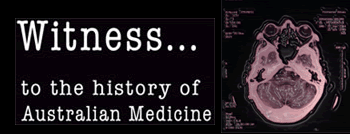


Tobacco Control: Australia's Role
Transcript of Witness Seminar
Introduction
Building the case for tobacco control
Producing, and Responding to, the Evidence
Campaigning for Tobacco Control
Economic Initiatives in Tobacco Control
The Radical Wing of Tobacco Control
Revolutionary Road
Tobacco Industry Strategies and Responses to Them
Campaign Evaluation
Managing Difficulties in Light of Community Consensus
Radical Wing Again
The Process of Political Change
Tobacco Campaigns Up Close
A Speedier Pace of Change
Political Needs and Campaign Strategies
Litigation and its Impacts
Insights from Tobacco Control
Tobacco Control in Australia in International Perspective
Appendix 1: Statement by Anne Jones
Endnotes
Index
Search
Help
Contact us

Trish Cotter: Itís that comprehensive approach that we talk and write about. All those things are important. Sometimes some approaches have a higher profile than others but it doesnít mean theyíre not all important and not all happening at the same time.
I think having worked in other areas myself, thatís the thing that tobacco does differently from other health issues. It keeps the pot boiling on all of them. Other issues donít seem to be able to keep it all going at the same time.
Dorothy Reading: I think the skin cancer prevention campaign has always been comprehensive and has more or less kept all these approaches going, depending on funding.
Kathy Barnsley: But no-oneís selling the sun.
Dorothy Reading: Iím talking about tobacco.
Garry Egger: Thatís the point Iím trying to make. There have been papers written about the lessons from tobacco control for other epidemics. From my reading, some of them say there are lessons, others that there arenít.
Kate Joel (McAllister): Weíre dealing with human behaviour at the end of the day. Thatís the common element.
Simon Chapman: One of the areas in which Australia has probably led the world in tobacco control is in strategic research, rather than just investigator, curiosity-driven research. Itís been, ĎWe need some information in order to be able to move the argument in the direction towards legislative changeí, that sort of thing.
Ron Borland: Itís been a much more comprehensive approach than that. I think David started it with the national survey of smoking prevalence for the Cancer Council (Victoria) with Nigel back in the early 1970s. We actually provided the database and that systematic approach to collecting the data that we need to address the issues.
Itís strategic, often in a long sense, in that it often only bears fruit 10 or 15 years after you put in place the data collection strategies and start collecting the data so you can document the problem. Then youíve actually got the facts to be able to drive things forward. After that the little bits around the edge actually fit into place. I think that strategy has been extraordinarily important.
Mike Daube: In terms of learning lessons and so on. Of course tobacco has lessons for other areas, just as tobacco itself also has things to learn from other areas. Back in the early 1970s I learned about campaigning from the poverty lobby. I think tobacco still has something to learn from others areas, from alcohol, for example about issues around access. I donít think thereís an argument there.
Back to the point about research, weíve been really fortunate in tobacco that there are a lot of focussed researchers. In other areas, taking up Simon and Ronís point, there are lots of people doing really interesting research. But some years ago when I reviewed the NHMRCís funding on obesity, I think there were about 300 research projects for funding. I counted about five that could have any impact on public policy over the next 50 years.
There was lots of interesting theoretical stuff and, for some reason with tobacco, thereís some of that but much of it is more focussed.
Garry Egger: Simon made this point earlier. Tobacco doesnít have the silos that you get in these other areas. When you get a silo, of the 300 articles they may not have been good, but theyíre good within a very small silo and they donít have a huge impact overall. Iím not suggesting that there arenít things to learn from what weíve learnt in tobacco. Iím just wondering what specifically there is to learn and what we can take into other areas. Itíd just be good to have a go-to point where you can start off.
And on the point Ron made earlier about data, I was involved in the first report on obesity in Australia in 1993. We came up with a whole list of things that would work really well. None of them were enacted. Another report has just come out in the last 12 months with virtually the same items. It seems that nobodyís learned anything in those 20 or 30 years.
Paul Grogan: Hereís an anecdote (that demonstrates a particular perspective). I was trying to engage a senior MP on obesity last year. The response was, ĎIíve just seen the new ABS[178] data . Australian men are going to live to 80 for the first time ever. Weíve got a country in debt. Weíve got an economy thatís struggling and unemploymentís rising. We like you guys but, seriously, stop trying to catastrophise stuff.í
The broader spectrum take on that is that weíll never be able to demonise food, and alcohol to a lesser extent, to the same extent as you could with tobacco products.
To your first point, there are probably half a dozen areas I could rattle off where regulation and legislation could reduce obesity. Itís getting that level of engagement because food products are much harder to demonise and that gives people who donít want to do things an easy way out.
 |
Witness to the History of Australian Medicine |  |
© The University of Melbourne 2005-16
Published by eScholarship Research Centre, using the Web Academic Resource Publisher
http://witness.esrc.unimelb.edu.au/164.html